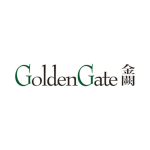China recently amended the Provisions on Administration of Enterprise Name Registration (企业名称登记管理规定). The amended regulation will become effective on March 1 2021.
A particular enterprise name is often associated with the enterprise’s goodwill and reputation, as well as the identification of its products and service. Pursuant to Article 1013 and Article 1014 of the Chinese Civil Code, an enterprise enjoys the right of name that no other entities or individuals may infringe upon. Furthermore, pursuant to Article 6(2) of the Chinese Anti-Unfair Competition Law, when engaging in commercial transactions, business operators shall not adopt unfair means including using, without authorisation, another enterprise name to cause others to mistake their products for the others’ products.
Typically, the Chinese Supreme Court interprets an ‘enterprise name’ as the name that has been registered in accordance with the Chinese registration authority or a foreign enterprise name that is in commercial use within China. Hence, the amended regulation will lay a sound foundation for the protection of an enterprise name.
Reducing bureaucracy
Above all, the amended regulation establishes a self-independent registration system that will replace the existing pre-approval system, where it typically took seven working days for an applicant to obtain an approval for an enterprise name to be used.
To implement the self-independent registration system, official databases at various levels have been built up. As a result, an applicant may log into the database, submit relevant information and materials online, check and screen its proposed enterprise names, and select an enterprise name instantly.
Guidance on permitted names
The amended regulation improves the guidelines in connection with the elements and composition of an enterprise name. The regulation sets forth nine circumstances that will disqualify a name. For instance, a name that contains the contents of ethnic, racial, religious and gender discrimination, or contains contents of obscenity is prohibited.
It is worth noting that the use of the word ‘China’ in the enterprise name shall need to obtain an approval from the state council. However, a wholly foreign-owned enterprise or foreign controlled invested enterprise in China is permitted to contain the word ‘China’ within its name. In addition, the name of a branch of an enterprise shall be preceded by the name of the enterprise to which it belongs, and be supplemented with such words as ‘branch’. The branch of a foreign enterprise shall also indicate the nationality and the form of responsibility of the foreign enterprise in its name. The regulation also requires that an enterprise should indicate its industry or business characteristics in its name according to its mainstream business and the classification according to the national industry classification standards.
To protect an enterprise’s name right, the amended regulation requires that the competent registration authority should not approve the registration of an enterprise name, if the name applied for registration is the same as or similar to:
i) An enterprise name that has been registered;
ii) An enterprise name that has been cancelled or changed for less than one year; and
iii) A name of the enterprise whose business registration has been revoked for less than one year.
Meanwhile, if the name of an enterprise is transferred or authorised to be used by others, the relevant enterprise shall make a public announcement through the national enterprise credit information publicity system, in accordance with the law.
Enhancement of supervision and dispute settlement mechanism
The amended regulation strengthens the supervision and dispute settlement mechanism related to enterprise names. If the enterprise registration authority finds that the name of the enterprise does not conform to the provisions when the authority review the materials in relation to the registration of establishment of the enterprise, it shall refuse the registration by giving a written explanation.
On the other hand, if an enterprise considers that the legitimate rights and interests of its own name is damaged by another enterprise, it can file a lawsuit in court or request the registration authority to deal with the infringement. After accepting the application, the enterprise registration authority may conduct mediation; if the mediation fails, the enterprise registration authority shall make an administrative ruling within three months from the date of acceptance. If the court or the enterprise registration authority determines that the use of the enterprise name should be stopped, the enterprise concerned shall register a change of the enterprise name within 30 days from the date of receiving the effective legal document of the court or the decision of the enterprise registration authority. If an enterprise fails to change its name within the time limit, it will be blacklisted in the list of enterprises with abnormal business operations.
The amended regulation is an important part of Chinese reforms to improve overall government service efficiency and optimise the commercial system and business environment. It is anticipated that the amended regulation will streamline the registration procedure and better protect the legitimate rights and interests of enterprises.
Bruce Fu
Attorney-at-law












